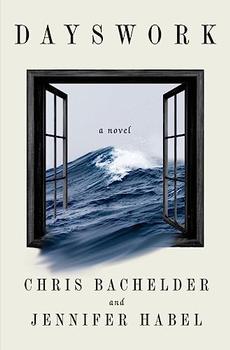
This morning I discovered a list, derived from student complaints, of the ten writers most likely to put you to sleep.
It's actually just nine writers, I discovered, because Herman Melville
is mistakenly listed twice.
Over coffee, I read my husband the list of the "biggest snoozers":
- William Shakespeare
- Ernest Hemingway
- William Faulkner
- Herman Melville
- James Joyce
- Fyodor Dostoyevsky
- Thomas Hardy
- Herman Melville
- John Steinbeck
- Joseph Conrad
"Remember how easy it was in high school to fall asleep while reading classic
novels like
Tess of the d'Urbervilles and
Moby-Dick?" asks
the author of the article on soporific classics.
Who reads
Moby-Dick in high school? my husband said.
Julie Taylor, I told him, is reading
Moby-Dick in the pilot of
Friday
Night Lights.
And Rory Gilmore, I told him, is reading it in the pilot of
Gilmore
Girls.
And Heather Duke reads it in the opening scene of
Heathers, but only
because Salinger wouldn't grant permission to use
The Catcher in the
Rye.
My husband asked if any pretend boys read
Moby-Dick in high school,
and I said no.
Zac Efron does read it, I said, but he's a troubled Marine vet.
This morning I see that
Moby-Dick has for many years been assigned
to actual students at the Hackley School in Tarrytown, New York—
"It's far too seldom these days that high school students get a chance
to grapple with work as long and complex as
Moby-Dick," according
to one teacher of English 11.
"Yes, we read the whole thing," said his colleague.
"And then we celebrated."
One year, having completed the two-month unit on the novel, "the
entire 11th grade gathered to smash Whale Pinatas in the Lindsay
Room."
But I see now that in 2016
Moby-Dick was removed from the English
curriculum of the Hackley School.
An article in the student newspaper, the
Dial, presents the rationale
for the change: teacher fatigue, student opinion, curricular diversity
and variety.
"
Moby Dick is a long book," according to the English Department Chair—
"It practically drives other books out of the way."
Based on what is known of the composition of
Moby-Dick, it seems
likely that Melville did not intend to write such a long book—or such
a challenging one.
In June 1850, seeking an advance, he pitched the novel to his publisher
as
a romance of adventure based upon his two years of experience as a
harpooner.
(He had been a harpooner for six months, if at all.)
In early August one of Melville's friends wrote in a letter, "Melville
has a new book mostly done—a romantic, fanciful & literal & most
enjoyable presentment of the Whale Fishery."
Melville, who then lived in Manhattan, was spending the summer at
a family property in Pittsfield, Massachusetts, and in August took a
break from his novel to entertain guests—
These were to be, according to one biographer, "madcap summer days
filled with parties, picnics, dinners, rambles, hikes, and even a fancy dress ball."
(Melville had invited his guests without first checking if there was
sufficient room in the family home, and there wasn't.)
One morning he took a break from his break to write a review of
Nathaniel Hawthorne's collection
Mosses from an Old Manse, though
he had not yet read all the stories.
By 2 p.m. he had written twenty pages.
By 2 p.m. he had written twenty pages on Hawthorne's stories, Hawthorne's darkness (
ten times black), Hawthorne's genius, Shakespeare's
genius, American genius, American critics,
the great Art of Telling the
Truth, literary ambition, originality, failure.
Excerpted from Dayswork by Chris Bachelder and Jennifer Habel. Copyright © 2023 by Chris Bachelder and Jennifer Habel. Excerpted by permission of W.W. Norton & Company. All rights reserved. No part of this excerpt may be reproduced or reprinted without permission in writing from the publisher.

 Book Reviewed by:
Book Reviewed by:


